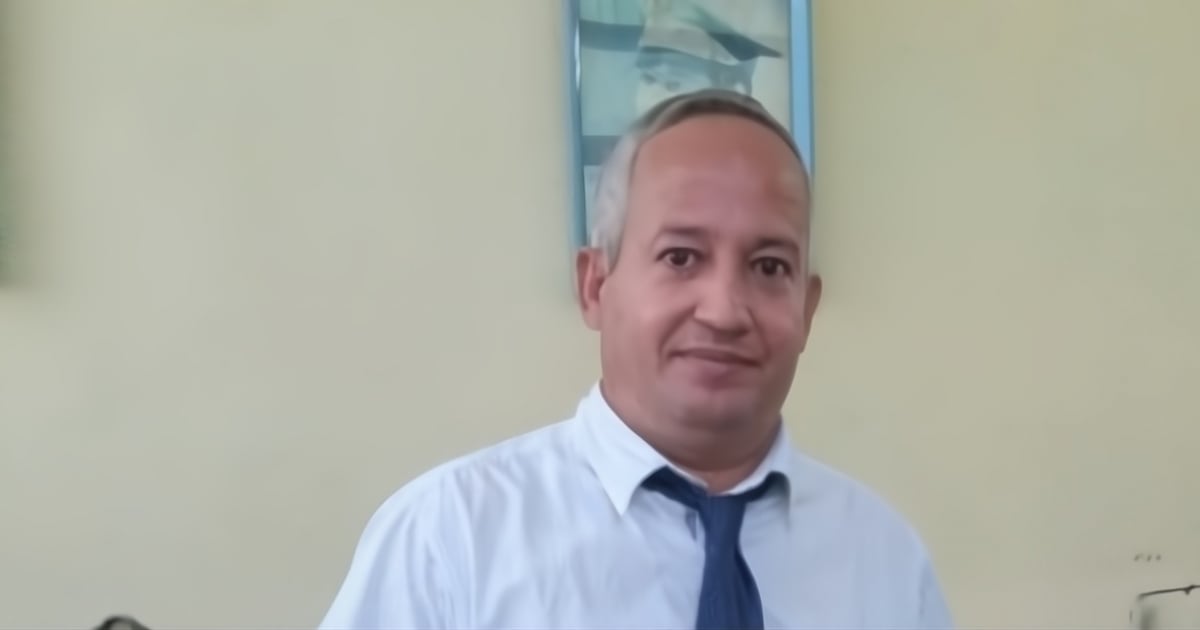Amalio Alfaro Matos, a former Cuban judge accused of signing off on harsh sentences for political prisoners in Guantánamo, is now residing in Tampa, Florida. He is seeking permanent residency in the United States through the Cuban Adjustment Act. Alfaro Matos previously served as the president of the Criminal Chamber of the Provincial People's Court in Guantánamo. He arrived in the U.S. two years ago under a humanitarian parole, a legal pathway created by the Biden Administration to assist Cuban citizens with sponsors.
"He entered the U.S. on April 12, 2023, via the humanitarian parole program and has applied under the Cuban Adjustment Act for permanent residency. He is concerned as he has not yet received even a work permit," a source told Martí Noticias.
Alfaro Matos's presence in Tampa has sparked outrage among Florida residents who were victims of the Cuban regime. Many claim that he played a repressive role within the judicial system. Independent journalist Roberto de Jesús Quiñones Haces, who was convicted in 2019 on charges of “resistance” and “disobedience” while covering a trial of two evangelical pastors, asserts that Alfaro was directly responsible for his imprisonment.
"He denied me protection and never allowed an appeal. He was a key figure in judicial repression," Quiñones declared, and he is not the only accuser. The organization Prisoners Defenders has documented Alfaro Matos's involvement in the conviction of activist Éider Frómeta Allen, leader of the #YoVotoNo campaign, who remains imprisoned under critical conditions in Cuba.
The former judge was involved in "fabricated political processes" against activists and dissidents in eastern Cuba but now resides peacefully in the United States.
Political Controversy Intensifies
The issue has escalated to the political arena. During a recent congressional hearing, Representative Carlos Giménez questioned the Secretary of Homeland Security about the entry of Cuban repressors through the humanitarian parole. The official acknowledged that immigration programs "have been corrupted" and promised measures to restore their integrity. Giménez warned other former regime officials residing in the U.S. that they will not find peace in the country.
Despite the allegations, Alfaro Matos has not publicly responded, and it appears he has yet to receive his work permit. His status in the United States might be at risk. This case has reignited the debate about the presence of former prosecutors, judges, and agents of the Cuban regime in the U.S., many of whom have managed to enter legally. "It is an affront to those who remain imprisoned or exiled for dissenting," lamented Quiñones.
Frequently Asked Questions About the Cuban Adjustment Act and Humanitarian Parole
What is the Cuban Adjustment Act?
The Cuban Adjustment Act is a United States federal law enacted in 1966, which allows Cuban natives or citizens who have been inspected and admitted or paroled into the United States to apply for a green card after residing in the country for at least one year.
What is humanitarian parole?
Humanitarian parole is a temporary, discretionary measure that allows individuals to enter the U.S. for urgent humanitarian reasons or significant public benefit. It is not a pathway to permanent residency but can be a legal means to enter the country.
Why is Alfaro Matos's case controversial?
Alfaro Matos's case is controversial because he is accused of being involved in the repression of dissidents in Cuba through his role as a judge, and his presence in the U.S. has raised concerns among those who suffered under the Cuban regime.
